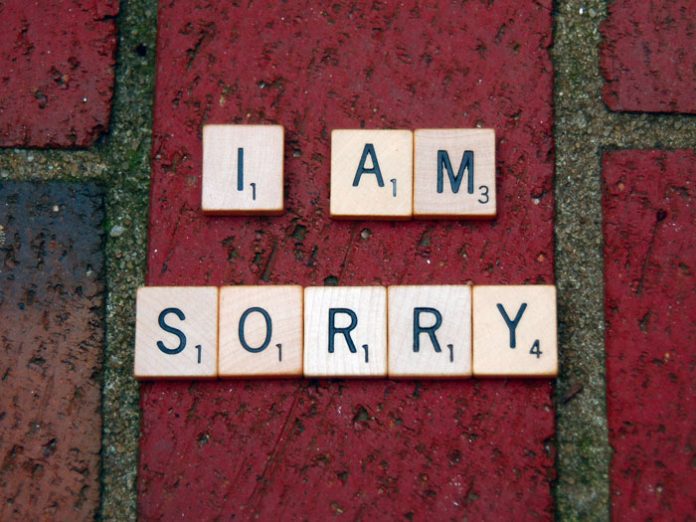It’s been a long time since then, but I distinctly remember my son sitting in the corner after he’d done something he shouldn’t have and regretting it mightily. He must have been around five or six years old at the time, and he was quite a mischievous fellow.
After letting him sulk for a while, my wife went over to explain to him what he had done wrong. But no sooner did she open her mouth when he stopped her in her tracks and assured her, probably quoting from a Shmuel Kunda tape, “I said I was I’m sorry.”
Nonetheless, the state of being sorry is distinctly different from just saying the words “I’m sorry.”
We are now in the season of being sorry. Throughout the month of Elul, and certainly during these Ten Days of Teshuvah, Yom Kippur being the highlight, the phrase “I’m sorry” is often heard. The point is to not just verbalize the sentiment, but to actually feel remorse.
But what does being sorry mean?
“Sorry” can mean many things in English. In some cases it’s not even associated with forgiveness, as in the Hebrew “slach li,” which literally means “forgive me.”
I realized this discrepancy only recently. Over the past two years, after losing my mother and then my father, of blessed memory, a lot of people told me that they were “sorry” for my loss. While I’d heard those words countless times before, when hearing them addressed to me, though outwardly gracious I was inwardly puzzled.
‘Why are you sorry?” I would murmur in an undertone. ‘It’s not your fault.”
I figured out that in that context “sorry” must be related to sorrow, meaning that they felt sorrow because of my loss.
Saying that you are sorry is not always an expression of genuine lament. After all, why would the phone company grieve when a person accidentally misdials a telephone number? Still, someone had to have programmed that mechanical voice to intone: “We’re sorry, but your call cannot be completed as dialed. Please check the area code and dial again or ask your operator for assistance.”
I hope the people who used the same terminology after the passing of my parents felt a little sadder than the one who tells you you’ve dialed a wrong number.
To me, saying “I’m sorry” seems to be all about yourself, without regard for the other person’s feelings. You are informing the aggrieved party how you feel, but are you beseeching his forgiveness? Saying you’re sorry and asking for forgiveness isn’t the same thing. And asking someone for mechilah can also have nothing to do with contrition.





















